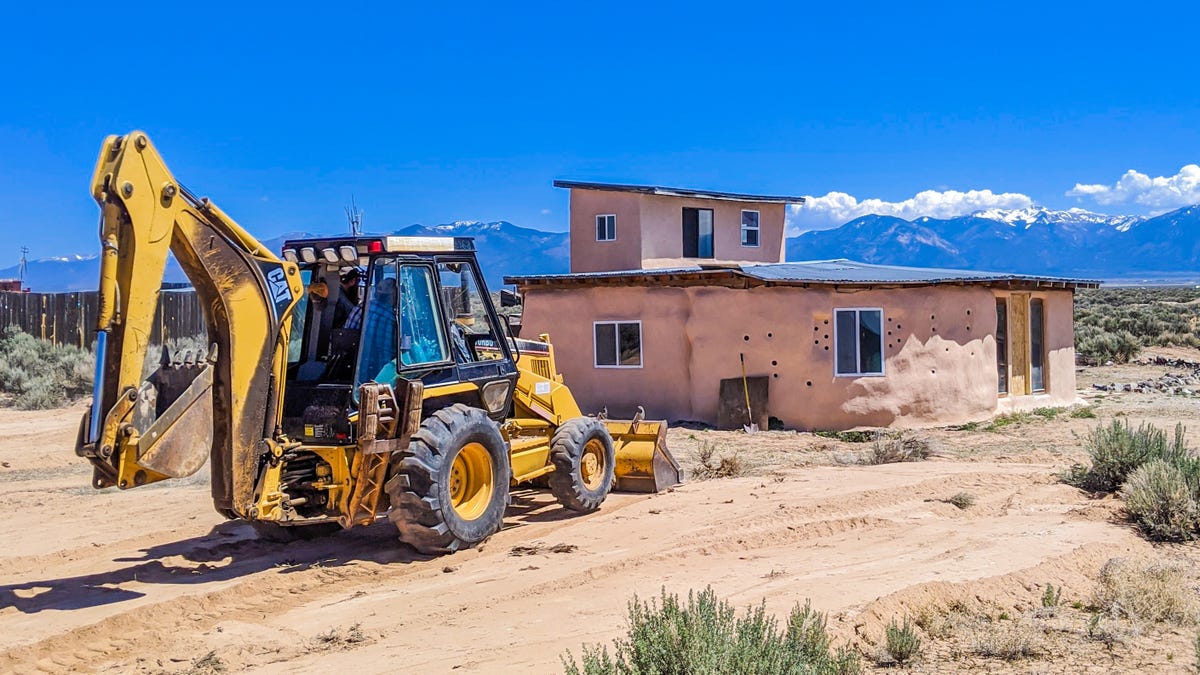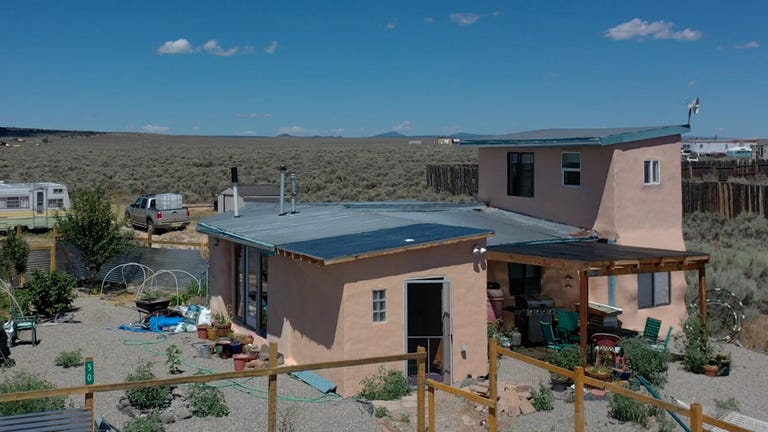My Best Tips After Setting Up My Own Off-Grid Solar Energy System – CNET
Real energy independence can be tricky to accomplish, but during the past few years, I’ve accumulated some insights that aren’t so obvious.
The main misconceptions about life off-grid are that it’s a struggle undertaken only by burned-out hippies, preppers awaiting the apocalypse and misanthropes holed up in remote mountain cabins.
I have met a number of these people (I’m a combination of all three), but grid independence remains my main reason for living this way. And you’re not so independent if it requires lots of cash, worry or maintenance.
So here’s a few of my best-kept secrets of living off-grid, to make the experience as affordable and headache-free as possible.
Watch this: Tour My 100% Off-the-Grid Home in the New Mexico Desert
06:48
Find people to power your off-grid projects
When I asked my daughter for her top pros and cons of living off-grid, she responded:
“There’s not many people around, and… there’s not many people around.”
Teens can be wise.
People, especially people with the skills and knowledge you might need to finish a project in a timely manner, can be a scarce resource here. But we all have more access than we probably realize.
You can save tons by taking a DIY approach to installing and maintaining off-grid systems, but this can be difficult-to-impossible in some jurisdictions, especially if you want to be fully up to code. This is where those scarce people-resources come in. If you’ve got someone in your network of friends or family with DIY or even professional building skills, chat them up about their exploits.
There are few DIYers out there who don’t love oversharing about their projects. (Some will even go so far as to write several thousand words about them on CNET.com.) Once you’ve got these folks invested, the next step is to invite them over to check out your project. We’ve had some success holding “work parties” — you supply plenty of food, beverages and good cheer and your buddies bring their skills, tools and sweat for a day. Just be sure to pay it forward when your friends have projects in the future.

Swapping work with friends and neighbors can speed projects along and keep you from doing it all on your own.
Going it alone
Of course, people are busy and most days it’s going to be just you tackling a new project or troubleshooting your latest plumbing problem or unexpected low voltage alarm.
Only hiring help when you’re truly stuck forces you to solve things on your own. This saves money and hones your ability to improvise. It’s a mindset that can lead to hidden savings on simple fixes around the house, when your reflex might be to simply jump on Amazon and order a brand new replacement.
Whether you’re off-grid or in the middle of a metropolis, the logical step most days is to turn to sources like YouTube, Reddit and CNET for help. But this can be tricky when working with systems that are less uniform and standardized than what you find in a brand new apartment building.
Every homestead is unique and there’s rarely a perfect resource for your specific project. I rarely find complete answers or solutions to my quandaries from a single YouTube video or article. I typically end up doing mini deep-dives into the topic at hand to determine the path forward, whether it’s the myriad differences between lithium-ion and lead-acid batteries or the different types of propane regulators. Even then, sometimes I forget to consider some unique aspect of my situation, and then trial and error is the only way I get the project finished and working. I always have something I need to return to the hardware store that turned out to be the wrong part for a project.
More tips to maximize your off-grid savings
Independence is the meat of the off-grid meal, and not paying utility bills is the gravy. A little planning in the beginning can help maximize those savings.

Doing the work yourself — on grid or off — can save you a pile of money.
Typically, we think of solar panels as a thing that goes on your roof, but if you have the space and clear line of sight to the sun on your property, consider putting them on the ground. There’s a few simple reasons for this:
1. Putting panels on your house, especially if it has a metal roof like mine, can require more expensive emergency shut-down safety equipment, and you also aren’t going to want to skimp when it comes to using the right supplies and help when putting a bunch of holes in your roof.
2. Installing panels on the ground also makes it easier to use a tracking system, (which are surprisingly affordable) ensuring you get the maximum amount of electrons from the sun, especially in winter.
3. Maintaining a ground system is also easier. After a major snowstorm, you’re going to want to clear snow off your panels as soon as possible, and nobody wants to have to climb on an icy roof to do so.
Elsewhere I’ve talked about not skimping on components for your off-grid system. While it might be a controversial thing to say, I don’t think this applies to solar panels themselves. Some solar panels are better than others, but they’re basically a commodity at this point, especially if you don’t care what they look like. They’re designed to keep producing efficiently for a couple decades and rarely fail.
When I came across used panels at a deep discount that were part of a utility’s array for just five years before being replaced, I grabbed them. I have a six-panel array with 1.2-kilowatt potential that cost me only $300. Total steal and it’s worked perfectly for over three years so far. So shop around: Ask your local solar supplier about any wholesale deals, check Craigslist and elsewhere online. I came across my panels on Facebook marketplace. Panels can be nearly as plentiful as electrons.
Put all these tips together and you get the compounded satisfaction of knowing you saved on setting up the system that will save you even more for years to come.



